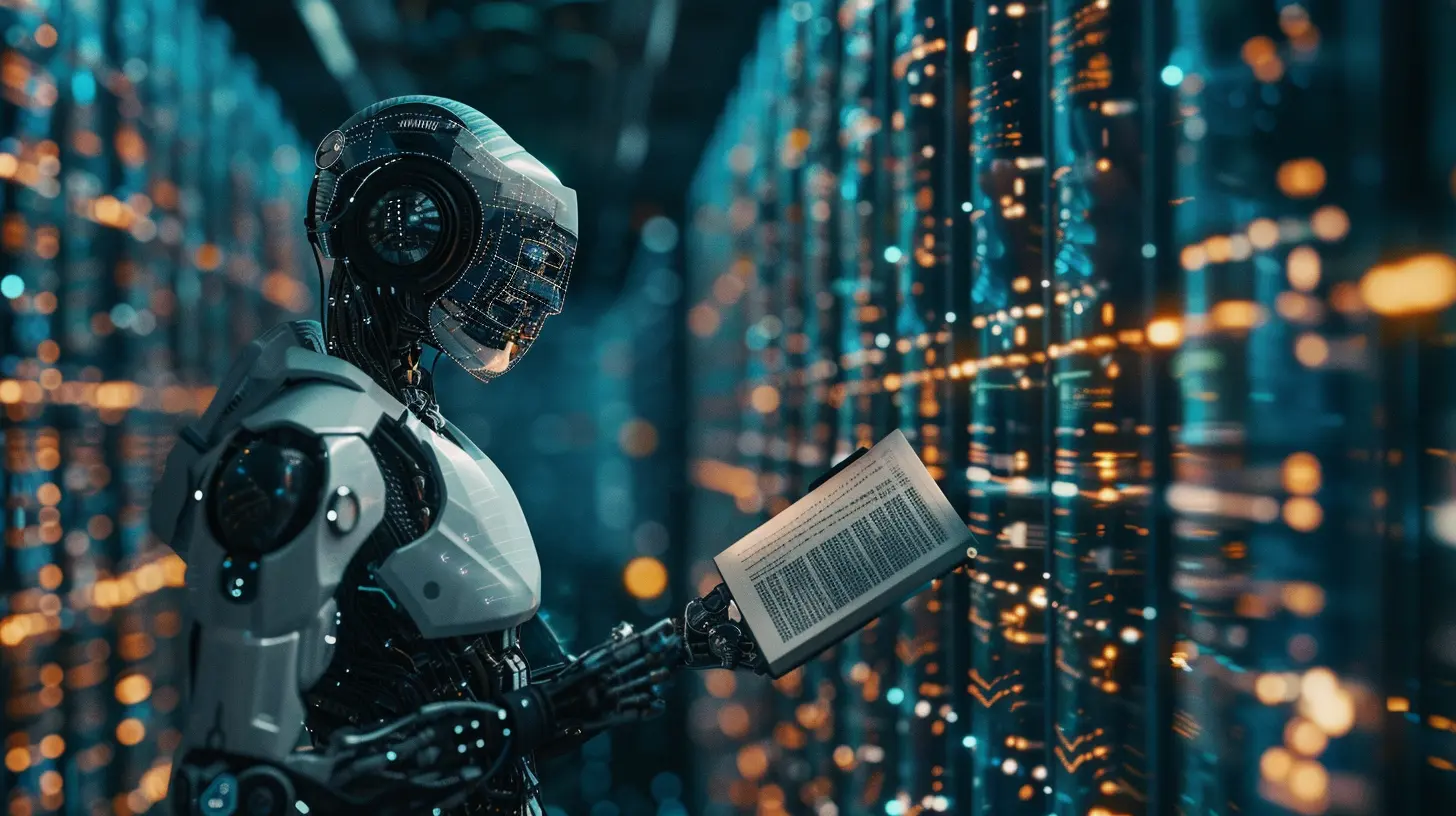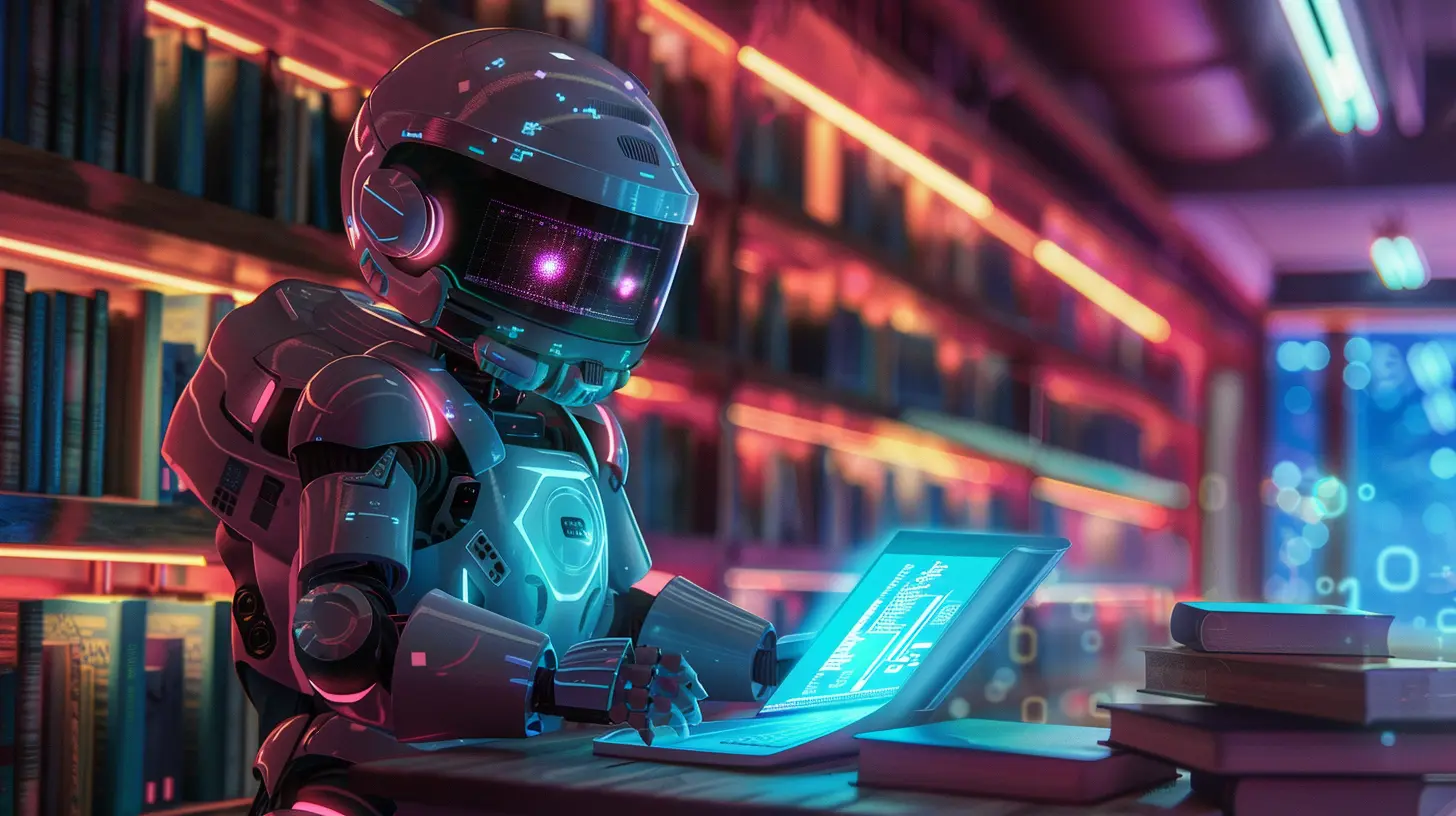The Impact of Artificial Intelligence on Digital Literacy Education
2 August 2025
In today's digital world, it's safe to say that artificial intelligence (AI) is no longer just a sci-fi fantasy. It's here, and it's transforming industries across the board—including education. But what does this mean for digital literacy? More specifically, how is AI shaping the way we teach and learn in this tech-savvy age?
Whether you're a student, a teacher, or just someone with a thirst for knowledge, understanding the role AI plays in digital literacy education is crucial. Let's dive deep into this topic and explore exactly how AI is changing the landscape of learning.

What is Digital Literacy?
Before jumping into the impact of AI, let's first define digital literacy. Simply put, digital literacy is the ability to find, evaluate, and use information through digital platforms effectively. It's not just about knowing how to use a computer or browse the internet anymore. Digital literacy includes:- Understanding how digital tools work.
- Knowing how to evaluate digital content for accuracy.
- Creating and sharing digital content in a responsible way.
In short, digital literacy is becoming a necessary life skill, much like reading and writing. And with the rise of AI, this essential skill is evolving rapidly.

AI and Digital Literacy: Friends or Foes?
So, where does artificial intelligence fit into all of this? Is it helping or hindering our ability to become digitally literate? The answer isn't black and white—it’s both.AI can act as a powerful tool to enhance digital literacy education, but it can also pose challenges if not used wisely. Let’s break it down into its pros and cons.
The Positive Impact of AI on Digital Literacy Education
1. Personalized Learning Experience
Imagine being taught by a tutor who knows exactly how you learn best—whether you're a visual learner, someone who needs to listen, or maybe a combination of both. That’s AI in education. AI-powered platforms can analyze students' learning habits and adapt the content accordingly.For example, AI systems like Khan Academy or Duolingo can gauge how well you understand a topic and adjust the difficulty level of questions in real-time. This personalized approach ensures that learners aren’t stuck on concepts they’ve already mastered or overwhelmed by topics that are too advanced.
2. Instant Feedback
Gone are the days when students had to wait days or even weeks for feedback on their assignments. AI-driven tools can provide near-instant feedback on quizzes, essays, and projects. Tools like Grammarly and Turnitin can automatically check for grammar, punctuation errors, and even plagiarism.This quick feedback loop helps students correct mistakes on the fly, reinforcing learning at the moment and boosting their digital literacy skills.
3. Access to Learning Resources
AI acts as a bridge for students, making learning resources more accessible than ever. With AI, students can access a treasure trove of knowledge at their fingertips. For instance, AI-powered assistants like Google Assistant or Siri can quickly fetch reliable information, helping students conduct research more efficiently.Additionally, AI can assist students who might have disabilities or learning difficulties. Text-to-speech tools, voice recognition software, and other AI technologies can make digital literacy education more inclusive, allowing everyone to access and engage with information.
4. Encouraging Critical Thinking
AI doesn’t just give answers—it can also ask questions. Some AI systems are designed to challenge students' assumptions and make them think critically. For instance, AI-driven platforms like Socratic ask probing questions to deepen understanding rather than just spoon-feed information.By encouraging students to think critically and question digital content, AI fosters the development of a more sophisticated digital literacy skill set.
The Challenges AI Brings to Digital Literacy Education
While AI has a lot to offer, it's not all smooth sailing. There are a few bumps in the road that educators and learners need to navigate.1. Over-reliance on Technology
Let's face it: AI can be so efficient that it might make us lazy. Think about it. How often do we Google something instead of trying to recall the information from memory? While AI can provide quick answers, it can also discourage deeper learning if we rely on it too much.In the context of digital literacy, students might become too dependent on AI tools like spell-checkers or fact-checkers. This can inhibit their ability to critically evaluate digital content by themselves, leading to a decline in independent thinking skills.
2. Data Privacy Concerns
The more AI knows about you, the better it can tailor your learning experience—sounds great, right? Well, not always. Personalization comes at the cost of data. AI systems often collect vast amounts of personal information, from learning habits to personal preferences.If these data aren’t handled securely, they could be at risk of being misused. Students and educators need to be aware of the privacy implications of using AI-powered platforms and strive to protect personal data in digital spaces.
3. Digital Divide
Not everyone has equal access to AI technologies. Some schools and students may not have the resources to invest in AI-powered tools, leading to a digital divide. This gap can make it harder for underprivileged students to catch up on digital literacy skills, widening the educational inequality.How Educators Can Harness AI for Digital Literacy
So, how can teachers and educators leverage AI in a way that maximizes its benefits while minimizing its drawbacks? It all comes down to balance.1. Using AI as a Supplement, Not a Replacement
AI should never replace human educators but should instead act as a supplement. Teachers can use AI tools to enhance the learning experience by providing personalized resources or extra practice. However, human interaction is still key to fostering critical thinking and creativity—two essential components of digital literacy.2. Teaching Digital Ethics Alongside Digital Skills
As AI becomes more integrated into education, it’s crucial to teach students not just how to use these tools, but how to use them responsibly. Digital literacy education should include lessons on data privacy, online safety, and the ethical use of technology.Students should be encouraged to think critically about the AI tools they use and understand both the potential benefits and risks.
3. Bridging the Digital Divide
Schools and educators must work to ensure that all students have access to AI-powered tools, regardless of their socioeconomic background. This might involve advocating for more funding, utilizing open-source AI tools, or finding other creative solutions to make digital literacy education more inclusive.
The Future of AI in Digital Literacy Education
As AI continues to evolve, its role in digital literacy education will only grow. So, what does the future hold?- AI as a Lifelong Learning Companion: In the future, AI could become a lifelong learning partner, guiding individuals through different stages of their education and career. Imagine an AI that grows with you, helping you stay up-to-date with the latest digital tools and skills.
- More Advanced AI Tutors: We’re already seeing the rise of AI tutors, but future versions could be even more sophisticated—understanding not just what you’re learning but how you’re feeling about it and adjusting accordingly.
- AI-Driven Curriculum Design: AI could also play a role in designing educational curriculums that are fully personalized to each student’s needs. Instead of a one-size-fits-all approach, AI could create bespoke learning paths for every student.
But with all these advancements, we must stay vigilant. The key will be ensuring that AI enhances digital literacy without overshadowing the need for human skills like critical thinking, creativity, and ethical judgment.

Conclusion
The impact of artificial intelligence on digital literacy education is undeniable. On one hand, AI offers incredible tools that personalize learning, provide instant feedback, and make education more accessible. On the other, it introduces challenges like over-reliance on technology, data privacy concerns, and the digital divide.The best way forward? Embrace AI as a supportive tool while ensuring that human skills and values remain at the forefront of digital literacy education. With the right balance, AI can help us not only become more digitally literate but also more thoughtful and responsible digital citizens.
all images in this post were generated using AI tools
Category:
Digital LiteracyAuthor:

Monica O`Neal
Discussion
rate this article
1 comments
Zevin McVicar
This article raises fascinating points about AI's role in shaping digital literacy. I'm curious to see how educators adapt their teaching strategies to integrate AI tools, fostering a more engaged and informed learning environment.
August 9, 2025 at 4:45 AM

Monica O`Neal
Thank you for your insightful comment! I'm glad you found the points intriguing, and I share your curiosity about how educators will evolve their strategies to effectively integrate AI tools in the classroom. This adaptation is crucial for enhancing engagement and digital literacy.


